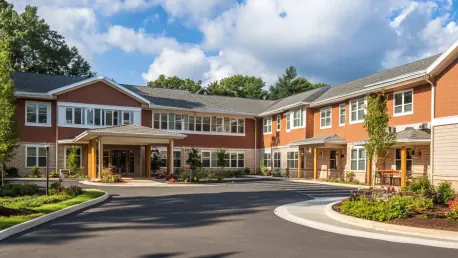Plans have been submitted for a new Extra Care facility in South Shields, spearheaded by Karbon Homes in conjunction with South Tyneside Council, aiming to mitigate the housing shortage in the area. The ambitious development intends to offer 124 one and two-bedroom apartments tailored for individuals with varying care and support needs, thus facilitating independent living. The proposed site is at the former Chuter Ede school location on Galsworthy Road and Benton Road. This initiative targets the critical shortage of specialist, affordable housing in the region. Remarkably, 25 apartments will be specifically designed for residents with dementia.
The Importance of Independent Living Solutions
Supporting Independence and Community Integration
South Tyneside’s new Extra Care facility has the potential to revolutionize the housing sector by offering necessary support while allowing residents to maintain their independence. Zoey Hawthorne, Assistant Director of Development Delivery at Karbon Homes, emphasized the venture’s significance, explaining that the facility will provide crucial housing support that promotes independent living. Residents will benefit from an environment specifically designed with their needs in mind, ensuring they can live safely and independently while still having access to necessary care services.
Council Leader Tracey Dixon echoed these sentiments, underscoring the community’s preference for independent living solutions over traditional residential care. Dixon praised the initiative for incorporating modern features and promoting community integration. The facility will include several communal amenities such as a Community Hub, a bistro café, and multi-use public spaces, fostering a strong sense of community among residents. These features are expected to enhance social interaction and reduce feelings of isolation, which can be especially beneficial for individuals with complex care needs.
Modern Amenities and Community Cohesion
The design of the Extra Care facility prioritizes both modern amenities and fostering community cohesion. The project, designed by JDDK Architects, will feature a four-story structure with apartments arranged around a central communal courtyard, encouraging residents to engage with one another. Ground-floor units will include private patios, while upper floors will boast balconies, providing outdoor spaces for all residents. Additionally, the broader plan includes landscaped areas and tranquil gardens, offering residents serene environments for relaxation.
The integration of such modern amenities supports the goal of creating a vibrant and connected community. The Community Hub and bistro café will serve as central gathering places for residents, enhancing social engagement and providing opportunities for various activities. Multi-use public spaces within the development will further promote a sense of community, supporting gatherings, events, and other community-oriented activities. By offering these modern facilities, the development aims to significantly improve the quality of life for its residents.
Energy Efficiency and Environmental Considerations
Sustainable Design and Technology
In addition to focusing on resident needs, the Extra Care facility is committed to incorporating sustainable design and technology. The development will utilize air source heat pumps for heating and hot water, reducing reliance on traditional energy sources and lowering overall energy consumption. Furthermore, rooftop solar PV panels will provide additional energy, reinforcing the project’s commitment to environmental sustainability. These energy-efficient technologies will not only reduce the facility’s carbon footprint but also lead to cost savings for residents by lowering utility bills.
The emphasis on energy efficiency aligns with broader goals of reducing environmental impact and promoting sustainable living. By integrating these technologies, the development sets a precedent for future housing projects in the region, showcasing how modern design can harmonize with environmental consciousness. The project represents an important step toward more sustainable housing solutions that benefit both residents and the environment.
Future Prospects and Broader Impact
The new Extra Care facility in South Shields is part of a broader effort to address housing shortages and promote independent living. This development marks Karbon Homes’ second Extra Care partnership with South Tyneside Council, following a prior 96-apartment project in Hebburn. The initiative aligns with the Council’s objectives to cultivate strong communities and promote the health and well-being of residents.
Funding from Homes England’s Strategic Partnership, which aims to deliver 2,200 affordable homes in the North East and Yorkshire, including 10% dedicated to individuals with additional support needs, will partially support the project. This collaboration highlights the importance of partnerships in addressing housing shortages and providing specialized housing that caters to the diverse needs of the community. Success from this initiative could lead to further projects, potentially addressing similar issues in other regions.
Conclusion
Karbon Homes, in collaboration with South Tyneside Council, has submitted plans for a new Extra Care facility in South Shields. This development aims to address the housing shortage in the area by providing 124 apartments designed for independent living, complete with various care and support services. Located on the former Chuter Ede school site at Galsworthy Road and Benton Road, the complex will feature a mix of one and two-bedroom units. Notably, 25 of these apartments will be specifically tailored for residents with dementia, making it a critical initiative to provide accessible and affordable housing. The development is part of a broader effort to increase the availability of specialized housing options for individuals with specific needs, thereby enhancing their quality of life. By developing such facilities, South Shields is taking a significant step toward ensuring that all members of the community have access to suitable living conditions, regardless of their care requirements.









